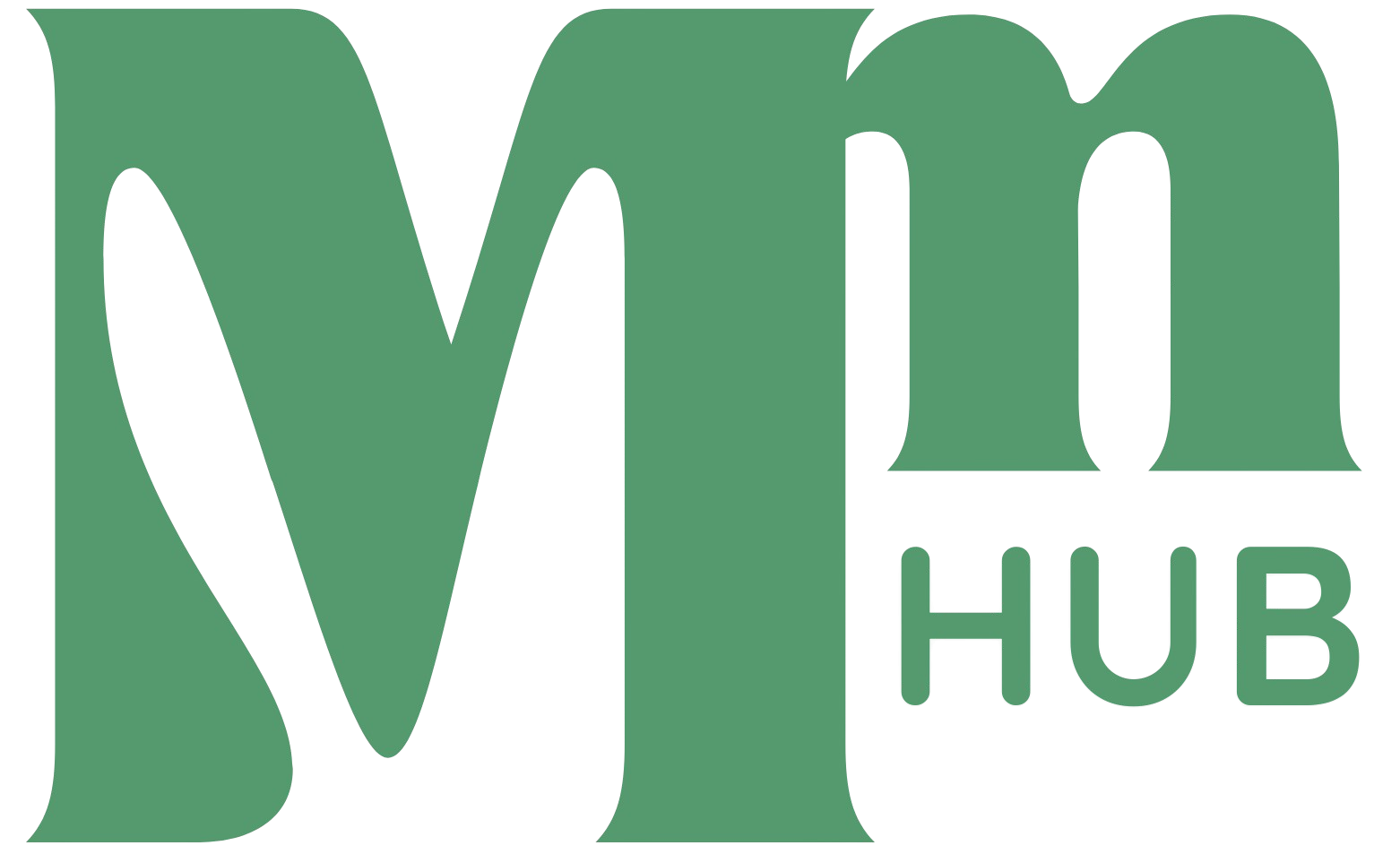At Massive Money Hub, we’re here to help you unlock your financial potential. Whether you’re starting fresh or looking to refine your money management skills, this platform is your guide. In today’s economy, understanding personal finance isn’t a luxury—it’s essential.
Our focus? Turning confusion into clarity and small steps into wealth building wins. This isn’t just another financial guide; it’s a roadmap to financial freedom tailored for real Americans.
Key Takeaways
- Master core personal finance concepts to boost decision-making confidence.
- Learn actionable steps for turning income into long-term wealth building opportunities.
- Discover tools that simplify money management without complicated jargon.
- Build a plan aligned with your unique goals, from saving to achieving financial freedom.
- Access resources that grow with you, from basics to advanced financial potential strategies.
Welcome to the Massive Money Hub: Your Gateway to Financial Freedom
At the Massive Money Hub, we’re here to help you achieve your financial dreams. Whether you’re just starting or looking to improve your plan, this hub is your guide to financial independence and success. We focus on simple, effective steps that work for people in real life.
What Makes Our Financial Approach Different
Our strategies are designed for Americans like you, without confusing terms. Here’s what makes us unique:
- Practical advice tailored to your income level and life stage
- Real-world examples from everyday success stories
- Guidance that connects theory to daily habits
How This Hub Will Transform Your Money Mindset
“Your mindset is the first step toward financial success.”
Many people face challenges not just with money, but with how they think about it. Our resources help change negative beliefs into positive strategies for a better money mindset. Learn to see chances instead of problems, and your view will change toward financial literacy and confidence.
The Journey to Financial Independence Starts Here
Follow this clear path:
- Start with a free financial assessment tool to understand your baseline
- Explore step-by-step guides in every section, from budgeting to investing
- Join community forums to share and learn with others
Every resource builds on the last, guiding you toward true financial freedom. Ready to start? Let’s turn knowledge into action.
Understanding Your Current Financial Position
Starting your financial journey begins with a clear financial assessment. This process helps you see where you stand today. It’s the first step to planning for tomorrow. Whether you’re a student managing loans or a family balancing bills, knowing your baseline is key.
- Calculate your net worth calculation: List all assets (savings, property) minus liabilities (debts, loans). Track this regularly to measure progress.
- Track cash flow: Note income vs. expenses. Use free apps like Mint or YNAB to simplify budget planning.
- Perform a money audit: Review 3–6 months of spending to spot unnecessary costs. Focus on habits, not just numbers.
| Assets | Liabilities |
|---|---|
| Checking/Savings | Student loans |
| Investments | Credit card balances |
| Property | Mortgages |
A financial assessment might reveal surprises. For instance, high student debt could impact financial goals. Remember: negative net worth isn’t failure—it’s a starting point. Many Americans rebuild finances by adjusting budgets and prioritizing savings.
“Your money story starts with honesty.”
- Set aside 30 minutes weekly for cash flow reviews.
- Adjust budget planning monthly to reflect life changes (e.g., rent hikes or bonuses).
Use tools like the Federal Reserve’s free budget worksheets or IRS expense calculators. A clear picture today empowers smart decisions tomorrow. Ready to take control? Start your money audit now!
Smart Investing Strategies for Beginners and Beyond
Ready to turn savings into growth? Whether you’re exploring beginner investing or expanding your portfolio, these investment strategies guide Americans toward long-term wealth. Start with the fundamentals to build confidence.
Stock Market Fundamentals for Americans
Master stock market basics by understanding indexes like the S&P 500. Learn how to buy stocks through apps like Robinhood or Fidelity. Even small budgets can grow with fractional shares—invest $5 in Apple or Tesla today!
Real Estate Investment Opportunities
From buying a first home to investing in REITs like Vanguard Real Estate ETF, real estate investing offers tangible returns. Crowdfunding platforms like Fundrise let you diversify without buying property outright.
Retirement Accounts: 401(k)s, IRAs, and More
Maximize tax benefits with employer 401(k) plans or a Roth IRA. For self-employed? Explore SEP IRAs to boost retirement planning. Consistency in contributions grows wealth over time.
Alternative Investment Pathways
Explore beyond stocks and real estate. Cryptocurrency platforms like Coinbase, peer-to-peer lenders like LendingClub, or collectibles markets offer unique investment strategies aligned with personal goals.
Debt Management and Credit Optimization
Managing debt and improving credit scores are key to financial stability. Let’s look at effective debt reduction strategies and credit-building tips that fit your goals.
Tackling Student Loan Debt Effectively
Student loan repayment can seem daunting, but with a plan, it’s manageable. Federal borrowers can use income-driven plans like Income-Based Repayment (IBR) or Pay As You Earn (PAYE). Public service workers might qualify for the Public Service Loan Forgiveness (PSLF) program.
Consider refinancing with lenders like SoFi or Earnest for lower rates. This is best for those with stable incomes.
- Compare repayment options using the Federal Student Aid estimator
- Review refinancing terms carefully to avoid extending loan terms
Strategic Credit Card Management
Use credit cards wisely to avoid falling into credit card debt. Keep balances under 30% of your limit to protect your score. Look for balance transfer offers from issuers like Chase or Citi to lower interest rates, but be aware of transfer fees.
Reward programs from companies like American Express can help offset spending if used responsibly.
Improving Your Credit Score: American Standards
Your FICO score affects loan and insurance rates. To improve your credit score improvement, focus on:
- Paying bills on time (35% of FICO score)
- Reducing credit utilization (30% of score)
- Maintaining long-standing credit accounts
Check your free annual reports at AnnualCreditReport.com and fix errors quickly. Tools like Credit Karma help track your credit continuously.
Income Growth Hacks and Side Hustle Opportunities
Ready to boost your earnings? Explore actionable steps to maximize income potential. Start with salary negotiation—practice scripts for raises, leveraging skills like data analytics or project management. Career advancement hinges on clear goals and proactive discussions with employers.
Turn free time into side hustles like driving for Uber or delivering groceries via Instacart. Freelance on Upwork or Fiverr using skills in writing, design, or IT. For passive income, invest in dividend stocks through apps like Robinhood or create digital products sold on Gumroad. Rental properties or affiliate marketing also generate steady cash flow.
- Research industry benchmarks before salary negotiation talks.
- Build a portfolio for freelance platforms to attract clients.
- Automate passive income streams with minimal daily effort.
Upskill with free courses from Coursera or LinkedIn Learning to qualify for higher-paying roles. Network at industry events to uncover hidden career advancement opportunities. Track taxes for side hustles using tools like TurboTax Self-Employed.
“Your income potential grows when you combine hustle with smart planning.”
Blend income increase strategies: mix active side hustles with passive streams. Small steps today build long-term financial momentum. Start with one idea and scale gradually.
Tax Strategies to Protect and Grow Your Wealth
Smart tax strategies can turn annual filings into year-round opportunities for wealth building. Let’s explore how tax optimization aligns with IRS guidelines to boost your bottom line without breaking rules.
Understanding U.S. Tax Brackets and Deductions
Marginal tax rates depend on income levels, but tax deductions reduce taxable income. Common deductions include mortgage interest, student loan interest, and charitable donations. Track these tax deductions annually—they lower what you owe.
- Marginal vs. Effective Rates: Your bracket doesn’t always equal your final tax bill.
- Itemized vs. Standard Deduction: Compare both yearly using IRS guidelines.

Tax-Advantaged Investment Accounts
Accounts like 401(k)s, IRAs, and 529 plans offer tax-advantaged accounts for growth. Health Savings Accounts (HSAs) and Flexible Spending Accounts (FSAs) add healthcare savings while cutting taxes. Mix these tools to diversify your tax exposure.
Year-Round Tax Planning Tips
Proactive tax planning starts early. Try these steps:
- Time income and expenses: Shift income or deductions to lower-bracket years.
- Use tax-loss harvesting: Offset gains with investment losses.
- Charitable giving: Bundle donations to hit deduction thresholds.
IRS guidelines change yearly—stay informed to avoid penalties. Small adjustments now save big later.
Building Generational Wealth: Beyond Personal Finance
Building generational wealth means creating a lasting legacy. It’s more than just saving money. It’s a family goal. Let’s see how to make it happen.
Estate Planning Essentials
Every family needs a plan for passing on assets. Key steps include:
- Creating a will and trust to outline inheritance distribution
- Designating power of attorney and healthcare directives
- Consulting legal experts to navigate state-specific estate tax rules
Good estate planning prevents costly delays. It ensures your wishes are followed.
Teaching Financial Literacy to Your Children
Start early to teach your kids about money:
- Age 5-10: Use allowance systems to teach saving vs. spending
- Teens: Open savings accounts and discuss budgets
- College years: Explain student loans and credit scores
These steps lay the groundwork for financial education for children. They help form lasting money habits.
Creating Family Investment Strategies
Combine individual efforts for shared growth with:
- Family investment clubs pooling resources
- Multi-generational real estate or stock portfolios
- Workshops to align investment goals
Even small incomes can grow family wealth through teamwork. Start small and grow over time.
Legacy is more than just money. It’s a journey of planning and learning together. Start today to secure your family’s future.
Digital Tools and Resources for Financial Management
Modern money management technology brings powerful tools to simplify your finances. Start with budgeting software like Mint or YNAB. They track your spending and help set goals. These financial apps connect to your bank accounts, giving you real-time insights to stay on track.

- Investment platforms: Compare options like Fidelity (traditional brokerage), Betterment (robo-advisor), or Webull (commission-free trading). Look at fees, minimums, and tools for your strategy.
- Financial calculators: Use NerdWallet’s retirement estimator or Bankrate’s mortgage calculator. They help model scenarios without guesswork.
“Security is key when choosing digital tools. Always review privacy policies and enable two-factor authentication.”
Emerging tech like AI-driven financial apps (e.g., Clarity Money) offer personalized advice. Blockchain-based platforms also experiment with decentralized savings. Choose tools that fit your goals, not the other way around. These resources make complex tasks easier, but remember: tech complements—not replaces—your financial knowledge.
Conclusion: Your Roadmap to Success with the Massive Money Hub
Your financial journey begins today. Every step, from checking your current finances to picking investments, shapes your path to success. The Massive Money Hub offers tools and advice for every stage of your wealth journey.
Creating a financial plan that fits your goals is key. Start with small achievements, like tracking your spending or paying off debt. Then, move on to bigger steps like retirement savings or tax planning. Our resources help you set clear goals and stay focused.
Stay updated with our community forums and tax guides. Join others who are working to build wealth for generations. Remember, success is not always smooth. But, keep moving forward and you’ll get there.
Reaching financial freedom takes time and wise choices. Use our guides to plan your next steps. Stay informed with our newsletters or talk to advisors in our network. Every choice you make today helps secure your future. Begin with small steps, stay open to learning, and let the Massive Money Hub guide you.
FAQ
What resources does the Massive Money Hub offer for financial education?
The Massive Money Hub has lots of resources. You can find articles, interactive worksheets, and financial calculators. There are also video tutorials and newsletters to help you understand your finances better.
How can I start my journey to financial independence?
Start by checking your current financial situation with our tools. Set goals, whether short-term or long-term. Use our resources to learn about budgeting, saving, and investing.
Are the investment strategies suitable for beginners?
Yes, they are! Our investment strategies are for everyone, including beginners. We explain the basics of the stock market, real estate, and retirement accounts in a simple way.
How does the Massive Money Hub address debt management?
We offer practical advice on managing debt. This includes tips for student loans, credit cards, and improving your credit score. Our goal is to help you deal with debt confidently.
What side hustle opportunities does the hub recommend?
We suggest different side hustles like driving for rideshare services or freelancing online. We consider how much time you have and what skills you need to find the right fit for you.
How can I ensure good tax strategies?
Our hub helps you understand U.S. tax brackets, deductions, and investment accounts. We give tips for tax planning all year round. This way, you can make the most of your financial strategies while following the law.
What is the importance of estate planning?
Estate planning is key to making sure your assets go to the right people. We cover wills, trusts, and power of attorney. These are important for protecting your legacy.
How can I teach my children about financial literacy?
Teach your kids about money through age-appropriate activities and talks. Our resources offer ideas on teaching them about saving, investing, and making smart money choices.
What digital tools can help me manage my finances?
The Massive Money Hub reviews personal finance apps. These range from budgeting to investment management. We discuss both free and paid options and how to keep your financial data safe.



